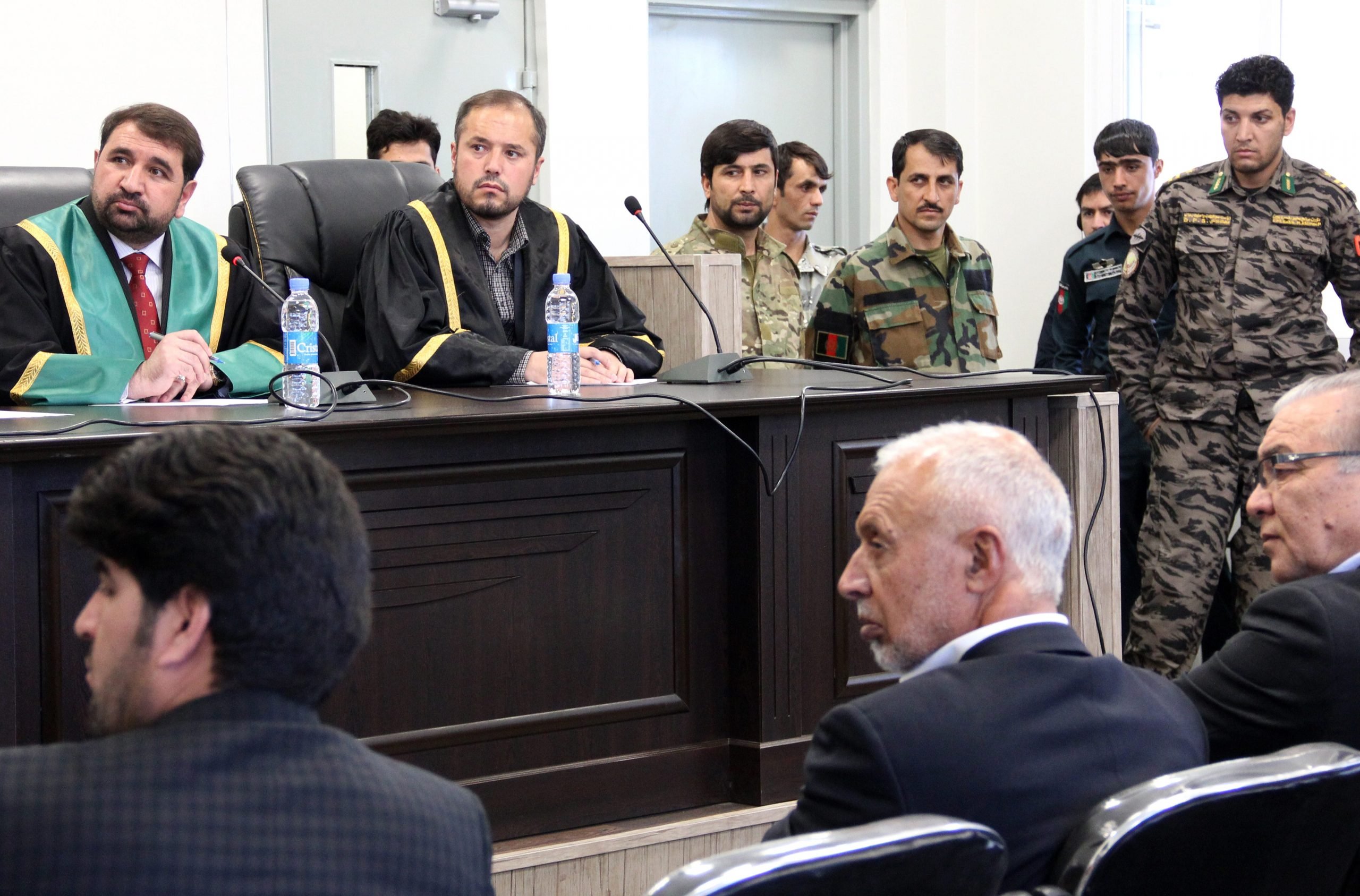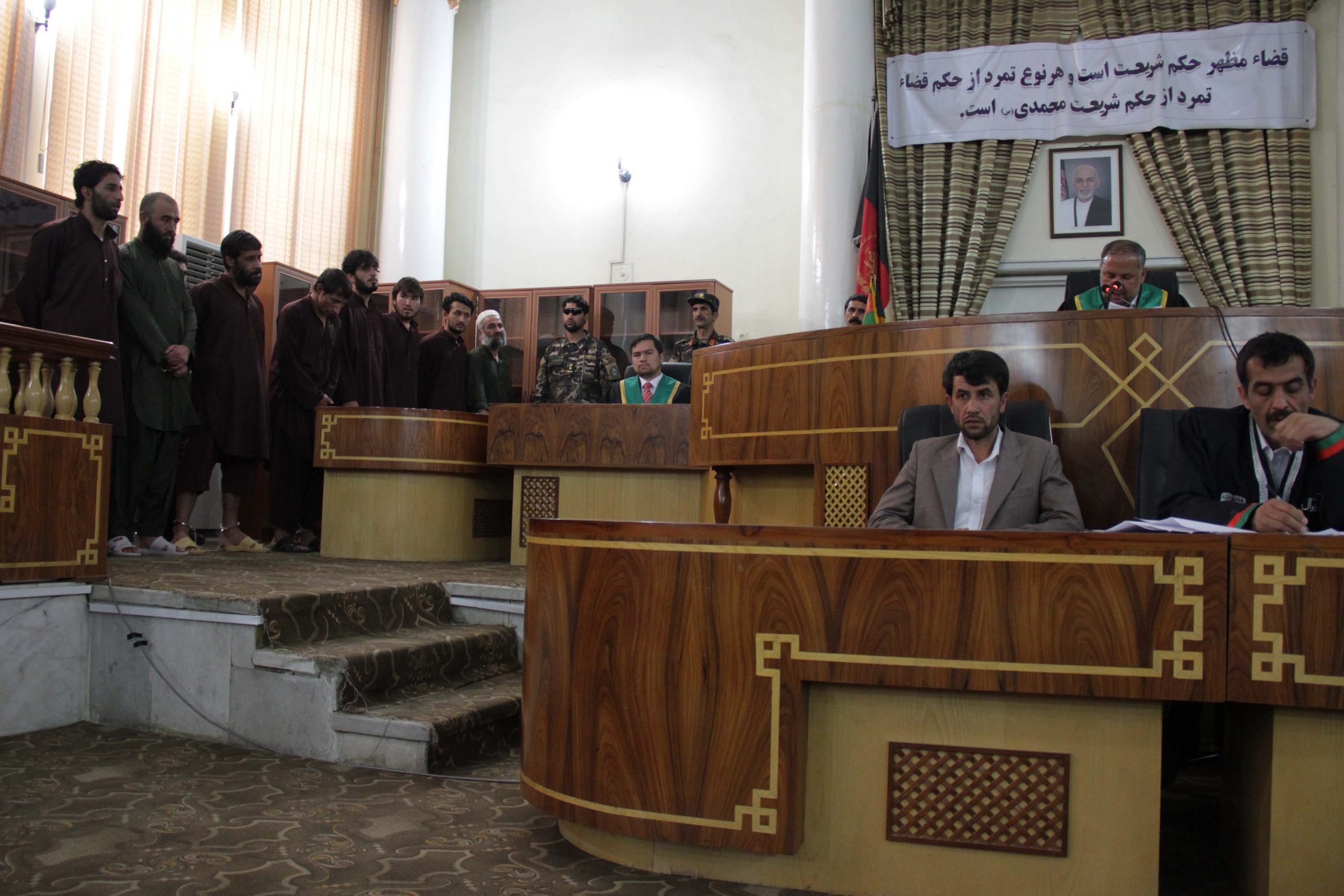
Rahmat Gul/Associated Press
- Taliban fighters in Afghanistan are hunting down judges of the previous government who sentenced them to prison.
- The militants said they would not carry out revenge attacks, but sources say they have not kept that promise.
- Insider spoke to former judges in hiding in Afghanistan, who said they are on the run and living in dire conditions.
- See more stories on Insider's business page.
When the Taliban took control of Afghanistan in a sweeping offensive last month, they promised a "general amnesty" to all Afghans, including those who had worked for the previous government or with foreign forces.
Despite their promises, multiple sources told Insider that Taliban fighters have been going door-to-door hunting for former government officials to carry out revenge killings.
Judges, in particular, are targeted because of the role they previously played in imprisoning the militants.
"I feel hopeless, abandoned and alone," Abdul,* a former judge who is in hiding in Afghanistan, told Insider.
"I'm in hiding. I change my location every 24 hours. Even my wife and children don't know where I am."
Abdul, 42, was formerly a judge in the public security and anti-corruption department in Kabul.
He told Insider that Taliban fighters went to his house looking for him and searched the homes of his family, friends, and colleagues.
They found his contact information through paperwork left behind in government buildings and called and threatened him.
"Yesterday, the Taliban called me two times, and they told me that we will tie your leg to a car and drive, and we will kill you," he said.

Christine-Felice Röhrs/Getty Images
After the Taliban took control of the country, the world watched in horror as thousands of Afghans crowded at Kabul airport, with several deaths in the desperate stampedes to secure a place on an evacuation flight.
Abdul could not secure a place on an evacuation flight. Despite many attempts to get a visa from any country that would take him, he has not been able to escape Afghanistan.
"I never thought that I would leave my country," Abdul said. "I have served this country, and I wanted my children to serve this country. But now, 100% if I stay here, my life and my family's lives are under threat. They will kill us if they catch us."
But he is not hopeful that he will ever get the chance to leave. The UK government is currently facing legal action after it rejected the visa applications of 35 mostly female judges.
Afghan fighters are determined to have revenge
Abdul said that if he senses that the Taliban are closing in, he plans to pour fuel on himself and set himself alight rather than risk capture.
Last week in Nangarhar, a former member of the National Directorate of Security was beheaded and his dead body thrown in a river, Abdul said.
After the body was found, the Taliban claimed that their fighters were not responsible, according to Abdul.
"There are three groups involved; the Doha team, the Taliban in Kandahar, and also the Haqqani network. The leadership doesn't have control over all of the networks and some of them are seeking revenge," said Abdul.
Since the Taliban took control of Afghanistan, reports have emerged of competing factions.
The head of one branch is the Taliban co-founder and interim deputy prime minister Mullah Abdul Ghani Baradar, who signed the Doha agreement on the withdrawal of US forces on behalf of the Taliban.
Other Taliban leaders, including the group's elusive leader Mullah Hibatullah Akhundzada, are based in the city of Kandahar, described as the de facto capital of the Taliban.
Another offshoot group is the semi-autonomous Haqqani network, which is allied with the Taliban.
Reports said that earlier this month, Taliban leaders brawled after arguing over who did the most to kick the US out of the country.
"I haven't gone home since the Taliban came to power"

Haroon Sabawoon/Getty Images
Mohammad*, 47, another judge, told Insider he went into hiding as soon as the Taliban took over the country.
"I have worked for almost 12 years in different provinces as the chief judge of the appeals court. I have imprisoned thousands of them. I have a lot of enemies right now," he said.
Mohammad said that Taliban fighters have also freed criminals from jails, including drug dealers and weapons smugglers he previously imprisoned, who could also seek revenge.
Along with personal vendettas, Taliban fighters also take issue with former judges because they enforced a Western legal system, which they say is against Sharia law, Mohammad said.
Since taking over the country, the Taliban have said the new legal system will operate based on their strict interpretation of Islamic law.
During their previous rule, this manifested in harsh punishments for minor infractions and the persecution of vulnerable groups, including women and LGBTQ people.
The group has already said it plans to bring back executions and the cutting off hands as punishments, and last week displayed the hanged bodies of alleged kidnappers in Herat.
Mohammad said that after the Taliban took control of Afghanistan, his life changed overnight.
"I am now jobless. I have no source of income. I haven't gone home since the Taliban came to power," Mohammad said.
"The places where I'm hiding are not places for a human to live. These are very bad places. We don't have access to basic things."
Mohammad said that he does not go outside unless it is to change locations, which he sometimes does multiple times in a day.
He said he is well-known in the community and easily recognized, and so he wears dirty clothes and disguises his appearance before moving locations.
Taliban fighters searched his home while looking for him, he said, and took his cars and the weapons of his security guards.
Mohammad said that now his main priority is trying to get his children out of the country. He said that his two sons are suffering from mental health problems, afraid for their futures, and unsure when they will see their father again.
"I want to ask the international community to just help us, just help our children to get out of here. Because their future, their everything is ruined," Mohammad said.
*Insider has given the judges pseudonyms to protect their identity.
